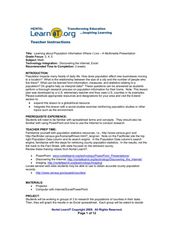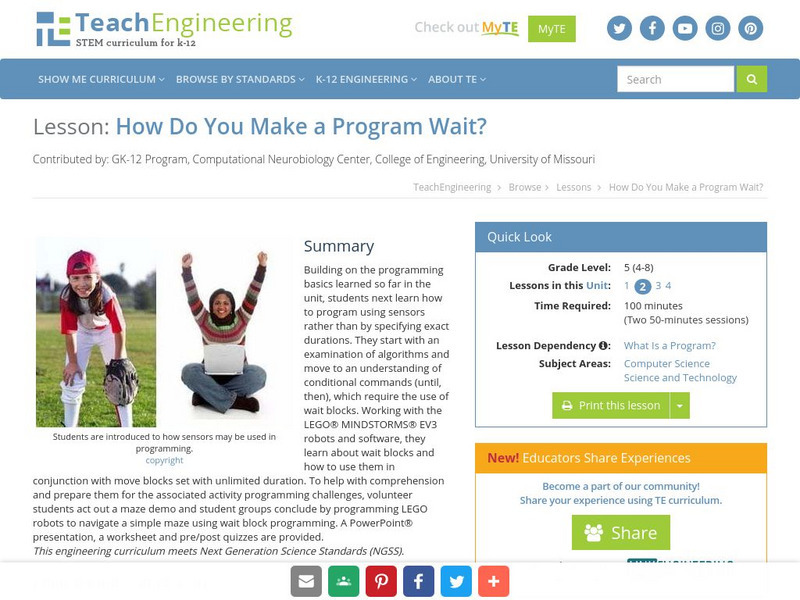Curated OER
Virtual Field Trip / Activity Research
Students visit a website to determine activities at three Michigan cities. They calculate the total cost of participating in the activities or visiting places such as zoos, planetariums, historic sites, and museums.
Curated OER
What Is Hot?
Young scholars explore why: Schools are hotbeds of popular young opinion about what to wear, which music to listen to, and what TV shows to watch. In this activity, students extend their fascination with "what's hot" to the books they...
Curated OER
Polar Biomes
Second graders research the animals, climate, and plant life in both of the Polar regions. They explore a variety of websites and complete a WebQuest. Students complete a chart, view a PowerPoint presentation, and answer true/false...
Curated OER
Butterfly Life Cycle
Third graders investigate the life cycle and development of butterflies. They complete an online WebQuest, and write journal entries about their research information. Students create a poster, and observe real Painted Lady larvae...
Curated OER
SIM Ecosystem
Students identify and interpret the concept of an ecosystem and the potential impact humans have on ecosystems. They also proficient in organized and methodical Internet searches. Finally, students become proficient with public...
Curated OER
Learning and Population Information - Where I Live
Students study their county populations in a multimedia presentation format. In this populations lesson, students work in groups of 3 to research the county populations in their state. Students chart their results in an Excel document...
Curated OER
What brings personal jets to the masses? Lots of computing
Students read an article and answer questions. In this jet lesson students rank the problems facing our nation in order from most to least difficult to solve.
Other
Sprk: Orb Basic Lesson 2 [Pdf]
Students will use Sphero to explore the computer science concepts of variables and conditionals (ifstatements). They will use OrbBasic, which is a text-based programming language for the Sphero. They will write a simple program that...
Other
Sprk: Orb Basic Lesson 3 [Pdf]
Students will use Sphero to explore the computer science concepts of reading sensors and storing data in variables. They will use OrbBasic, which is a text-based programming language for the Sphero.They will write a simple program that...
TeachEngineering
Teach Engineering: How Do You Make a Program Wait?
Building on the programming basics learned so far in a corresponding Robotics unit, students learn how to program using sensors rather than by specifying exact durations. Working with the LEGO MINDSTORMS NXT robots and software, they...
TeachEngineering
Teach Engineering: Storing Android Accelerometer Data: App Design
Students work through an online tutorial on MIT's App Inventor to learn how to create Android applications. Using those skills, they create their own applications and use them to collect data from an Android device accelerometer and...
TeachEngineering
Teach Engineering: How Does a Robot Work?
This lesson introduces electricity, batteries and motors using a LEGO MINDSTORMS NXT robot. The associated activity guides students to build a simple LEGO NXT set-up and see the practical implementation of the concepts discussed. Before...
Broward Education Foundation
Broward Education Foundation: Budget Technology [Pdf]
Learners will be divided into pairs and given a $1000 budget (imaginary) to create a project focusing on their area of interest within the school curriculum that will include a culminating audio/visual presentation. They must write an...







![Sprk: Orb Basic Lesson 2 [Pdf] Lesson Plan Sprk: Orb Basic Lesson 2 [Pdf] Lesson Plan](https://d15y2dacu3jp90.cloudfront.net/images/attachment_defaults/resource/large/FPO-knovation.png)


